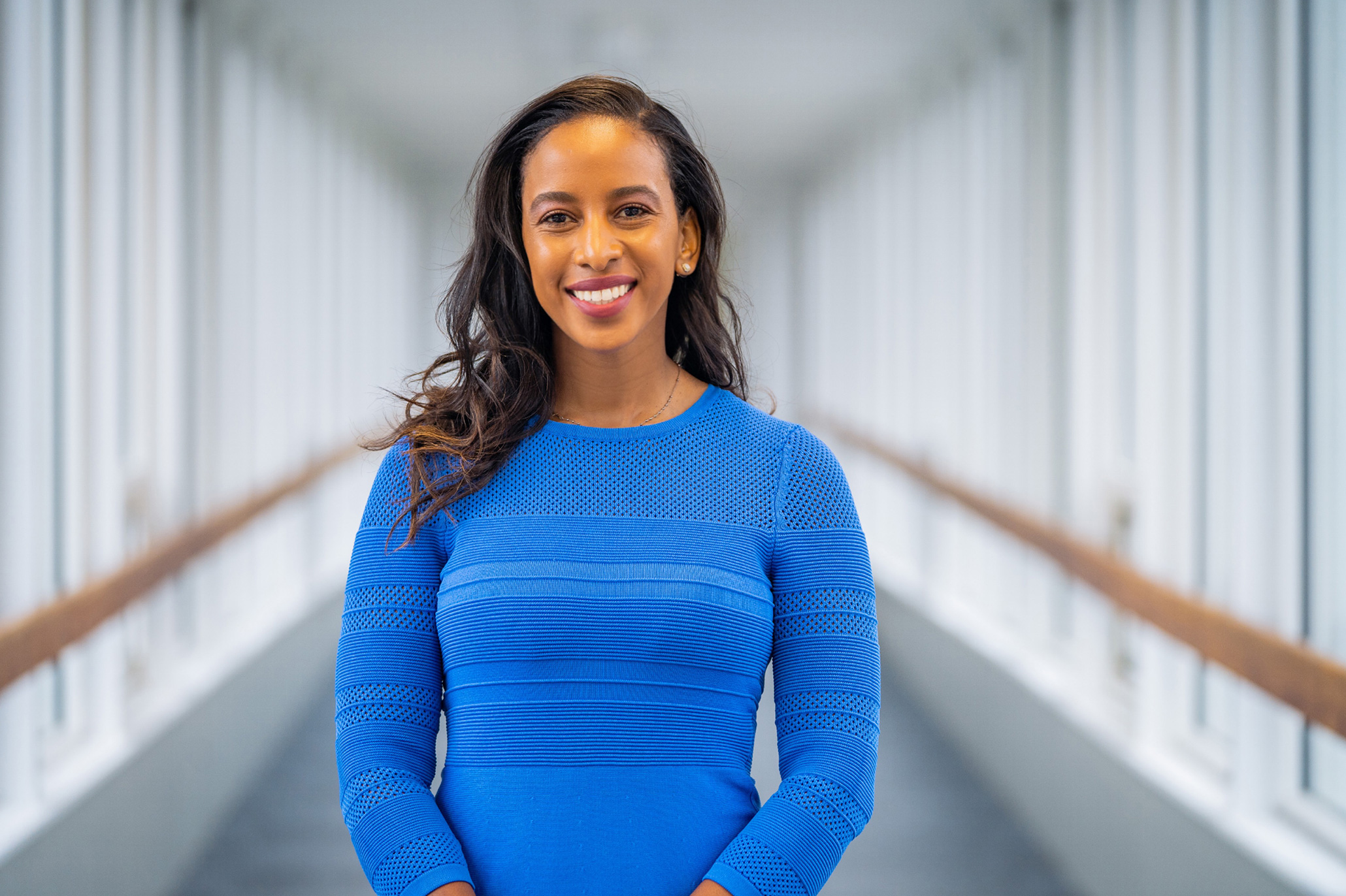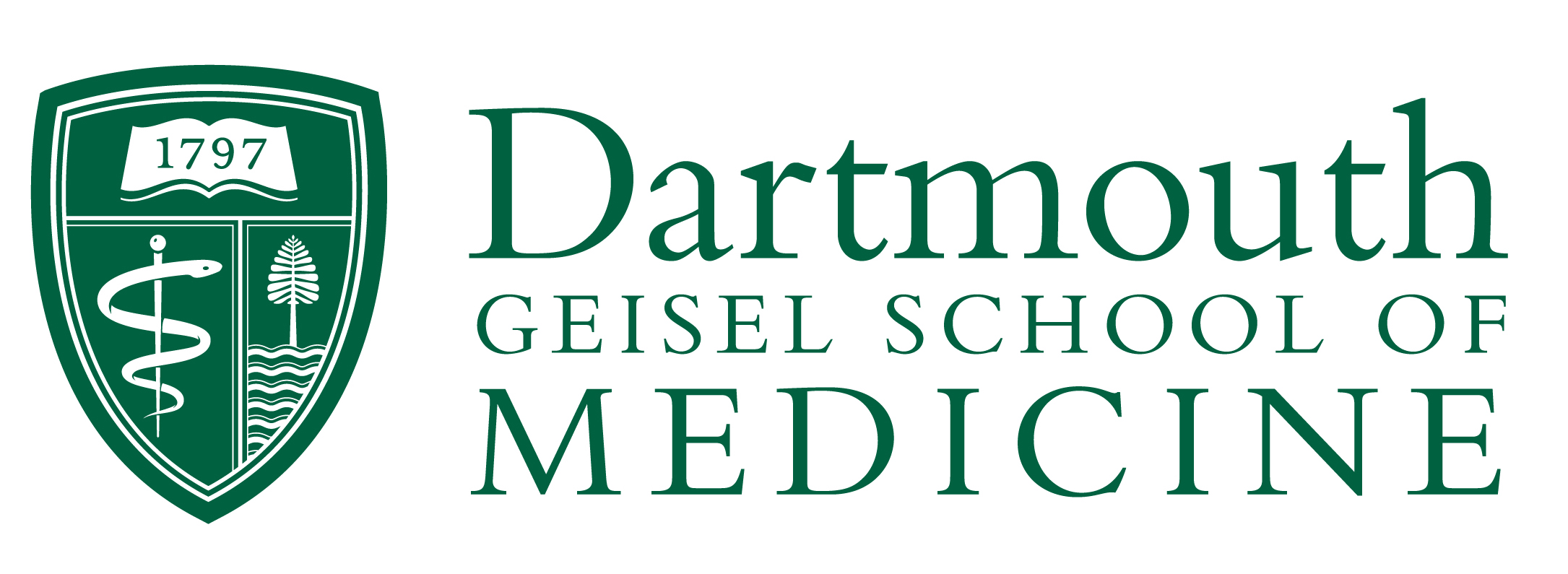
Earlier this year, Falen Demsas ’22 was elected as student body president, becoming the first black student elected to this role at the Geisel School of Medicine.
Her journey to medical school, much like her journey through student government, has been filled with resilience, a love for problem solving, and a desire to build community. She always wanted to be a doctor. In Eritrean culture there is a reverence for good health—in fact, when greeting someone it is common to say, “Tihina kemay alo.” Roughly translated it means “How is your health?” “This simple greeting that we exchange taught me that the value of good health is tremendous, I recognized how it allows one to provide for their family, and to live with independence, but more importantly it taught me early on to have a concern for the health of members of my community, not just my own,” she adds.
After emigrating to California with her family when she was 10 years old, the phrase took on new meaning—especially after seeing the effects of social determinants of health on people of color. Growing up she witnessed evidence of the healthcare system failing people who looked like her and developed a resolve to address these inequities. That realization coupled with her strong belief in leaving a place better than you found it—one of the values instilled by her parents—were ideals she carried with her to Geisel School of Medicine.
“Getting to medical school is not an easy journey for people who share aspects of my identity as a black woman from a working-class family and a first-generation immigrant,” she says. “But in a world that does not always remind me to be proud of these parts of my identity, they are what empowers me.”
A self-described problem solver, when Demsas sees problems she sees opportunity, and proactively begins to problem solve. And though she looks at problems through a student lens she recognizes there are different approaches and solutions to each. “It’s part of who I am,” she says of an attitude that has carried her forward, leading her to serve four years in student government. “My Dad and my older sister always remind me, it is about the work, not the credit, and that value keeps me energized and grounded.”
Fascinated by fellow medical students’ community service and research interests, Demsas sought an avenue to feature their work. Last year, as chair of professional development, she pitched her idea to several faculty and gained their support—Medical Student Grand Rounds debuted last autumn as a platform for students to discuss their research, advocacy, and community service work. One presentation featured a harm reduction program started by Geisel students several years ago that is now an established program in New Hampshire.
The value of that platform was revealed in a recent conversation Demsas had with a fellow fourth-year student Asia Gandy ’22, who was asked during a residency interview to share details about her medical student grand rounds presentation.
“That was so rewarding to hear because it was another opportunity for her to present her hard work, which in turn expands her resume and helps further her career goals. My role as chair of professional development allowed me to amplify the student voice and draw a light to the marvelous work my peers were already undertaking.”
She credits that role as a key step to being appointed student government president—an honor she doesn’t take lightly.
“As the first black student body president at Geisel, I recognize that this is a monumental moment that reflects the growth and progress at this institution,” she says. “Still, it is not lost on me that I am certainly not the first black student who was qualified for this role and in that spirit, I pay homage to those who came before me and fought tirelessly to create a place for me at this institution. I am impressed and humbled by how they have intentionally laid the groundwork for our success.”
Demsas believes Geisel is a special place filled with faculty, staff, and colleagues who are committed to fostering medical students’ personal and professional growth as learners, future physicians, and individuals. She views student government as an extension of that supportive, tight knit, and collaborative atmosphere—a student-driven vehicle for collective, actionable change to build an inclusive community through leadership and advocacy. It is through these efforts, medical students become better caregivers for marginalized communities, their patients, their peers, and themselves.
“You may bring your own values and willingness to create change with you to medical school, but it helps to have a community and leadership that is receptive to the student voice. I think there are still many opportunities for improvement, and we need to continue advocating for them. The potential at this institution is immense because of its unique, supportive community. I am grateful for my education and my time here and would like others to know they, too, can thrive and succeed,” she says.
Upon learning about her new role as president, she recalls her father telling her, “Being the first is hardly the accomplishment, the real success is when you know you are not the last. Make sure you keep the doors open that were opened for you.” And that is what she looks forward to doing as her career evolves.
She is applying into an Integrated Vascular Surgery Residency and hopes to match this March.




